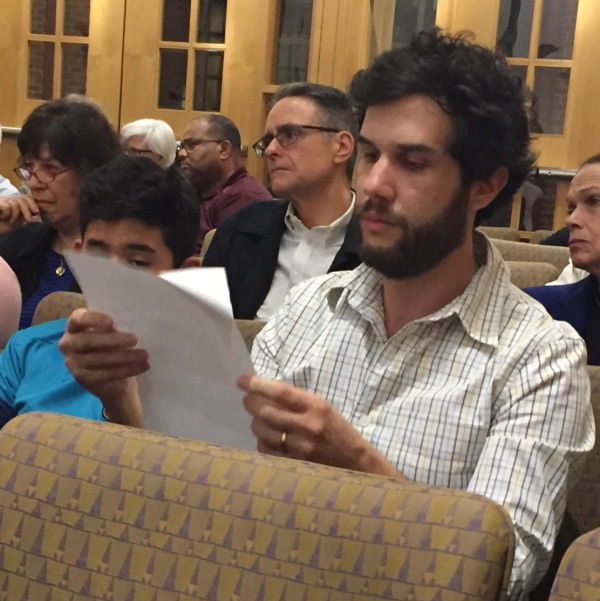A group representing local businesses in Princeton said this week that it could support a municipal ordinance requiring employers to give their workers paid sick time.
The Princeton Merchants Association held up as a model a measure on the books since January in New Brunswick, where full and part-time workers in that city get paid sick time, except if they work less 20 hours a week, among other provisions. The organization said it wanted to work with the Princeton Council to craft a sick pay ordinance that makes sense for Princeton, although it urged against adopting a measure that puts a burden on small businesses that rely upon part-time student labor.
“We urge the council to work with the PMA in a collaborative effort to create and adopt a paid sick leave ordinance that works for the benefit of us all,” said Arts Council of Princeton executive director Jeff Nathanson, also a PMA board member, at Thursday’s council meeting.
Mr. Nathanson told council that a survey by the PMA found that “a majority” of businesses in town provide paid time-off benefits to the majority of their workers.
“So we have demonstrated that we are supportive of the spirit of the ordinance and we would be supportive of an ordinance that effectively serves the needs of this community,” he said.
For the PMA, the organization wants a clear and simple way of resolving sick pay disputes and has concerns about added administrative work of tracking sick pay hours.
“We strongly believe this is a local conversation, and that any ordinance should reflect the true needs of our local community, both employees and employers, because it is we who will be the managers and recipients of these benefits,” restaurateur Jack Morrison said at the meeting on behalf of the PMA.
In his remarks, Mr. Morrison said New Brunswick is similar to Princeton: a college town with economically and ethnically diverse populations. He cited how New Brunswick officials passed an ordinance in December that says employers based in the city have to provide sick pay to their full and part-time employees.
The measure took effect Jan.6, but it does not confer the benefit to someone working fewer than 20 hours a week or impose the benefit on companies with fewer than five full-time equivalent employees. On the city website, it reads that “each 35 hours worked by ‘part-time’ and ‘full-time’ employees equals one FTE.” Also, businesses have to be based in the city.
“The PMA supports the New Brunswick ordinance as a baseline for our conversations,” Mr. Morrison told council.
But the New Brunswick ordinance falls short of what advocates are seeking, in a movement led by the pro-labor group, New Jersey Working Families Alliance. It wants a more sweeping requirement that does not exempt people or businesses. Also, its proposal would apply to employees of companies headquartered outside of Princeton but who do business in town, like a landscaping service.
“We need an ordinance that covers all workers,” said Craig Garcia, the political coordinator for Working Families.
The council will look to act on such a measure before the summer, with Council President Lance Liverman and council members Heather H. Howard and Patrick Simon named to a working group that will have two months to get something before the full governing body to consider.
“We’ll be sure that, if we meet with opponents, we will also having meetings with proponents,” said Ms. Howard, a supporter of a sick pay ordinance.
But Councilwoman Jenny Crumiller said the rest of council is not “ceding” its vote to whatever the group produces.
“We’re not necessarily going to agree with what the committee comes up with,” she said.
Advocates for a sick pay measure urged that three-member group conduct its business in public.
Jerome Montes, the business representative of the New Jersey Main Street Alliance, said he hoped the town keeps the “conversation transparent.”
Up to now, the town has had informal private meetings with people on both sides of the issue.

